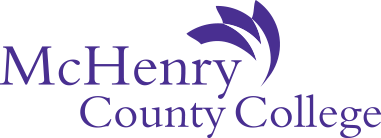Employer Resources
Discover talent right here in McHenry County
Partnering with MCC connects you with a talented pipeline of students and graduates who are eager to contribute to the workforce. Our Career Services team helps employers build visibility on campus and connect with candidates through job postings, internships, apprenticeships, career fairs, and on-campus recruiting.
By working with MCC, you’ll:
- Access skilled talent trained in today’s in-demand fields.
- Strengthen your workforce pipeline with interns and apprentices ready to learn and grow.
- Promote your organization directly to students, alumni, and the community.
- Contribute to local workforce development by supporting education-to-career pathways.
Together, we can help your business thrive while providing meaningful opportunities for students to launch their careers.
- Hire a Scot – powered by Handshake
Need great talent? Handshake is a powerful recruiting platform that helps employers easily connect with qualified college students and recent graduates for internships, apprenticeships, and full-time roles.
View our guide to using the Handshake career platform.
- Apprenticeships
Apprenticeships help you grow your skilled workforce by promoting existing workers or new hires, resulting in well-trained employees who thrive in your environment, culture, and job.
- Internships
Internships give students the chance to explore career paths and develop the skills needed for success. Students get valuable work experience in their fields of study while companies build a pipeline of talented, emerging professionals—truly a win/win for all!
- Micro-Internships
A Micro-Internship is a short-term project that can typically be completed within 5-40 hours and is due within a few days to a few weeks. These projects require no on-boarding and can be completed by a college student with minimal instruction. These are important but low-risk tasks that aren’t the best use of your time.
You set the price for each project. All projects are fixed-fee, and most are listed between $200-$600, typically implying $15-20/hour based on estimated hours of work. 90% of this fee goes directly to the intern, and there are no obligations or other fees even if the relationship turns into an internship or full-time role.
Micro-Internships can be either on-site or virtual, depending on the specific requirements of the project. We typically suggest remote, as this provides more flexibility and accessibility.
- Campus Table Visits
Showcase your company and connect directly with talented students by setting up a campus table during Employer Wednesdays! It’s a great way to share your opportunities, answer questions, and build your talent pipeline — all in a friendly, engaging environment right on campus. For reservations, email Career Services or call (815) 455-8566.
- Job Fairs
MCC’s Job Fair gives you the chance to connect with a diverse pool of motivated students and recent graduates. It’s the perfect opportunity to showcase your company, share opportunities, and connect with the next generation of talent.
- Career and Technical Education Advisory Committees
MCC relies on the close ties we have with business and industry to ensure our Career and Technical Education (CTE) programs meet current occupational needs. To that end, we build program-specific committees for each area. These committees generally meet once a semester for about two hours to help advise us on the development, implementation, and evaluation of CTE programs to ensure we’re meeting both our student and workforce needs in the community.
